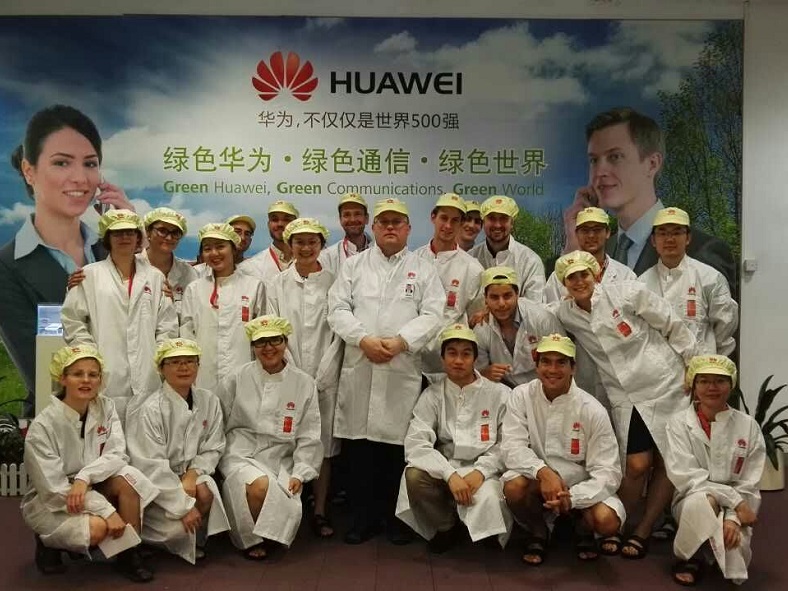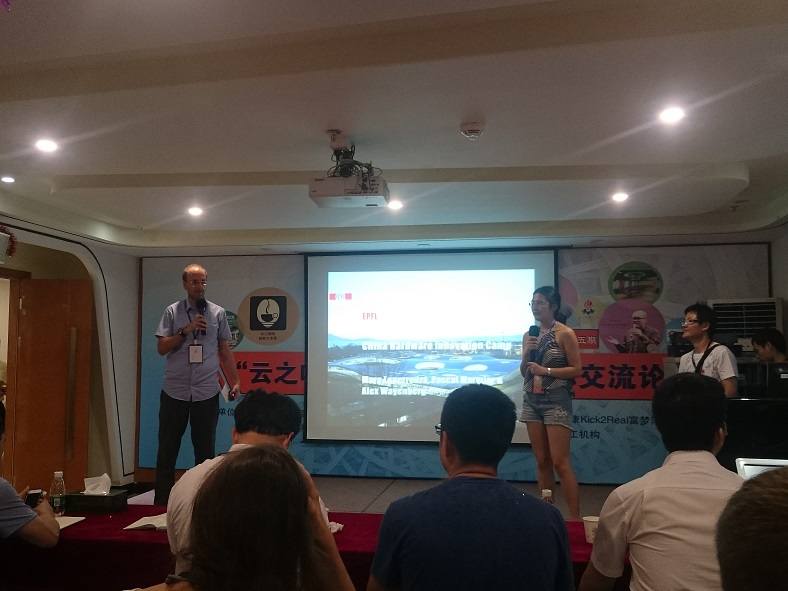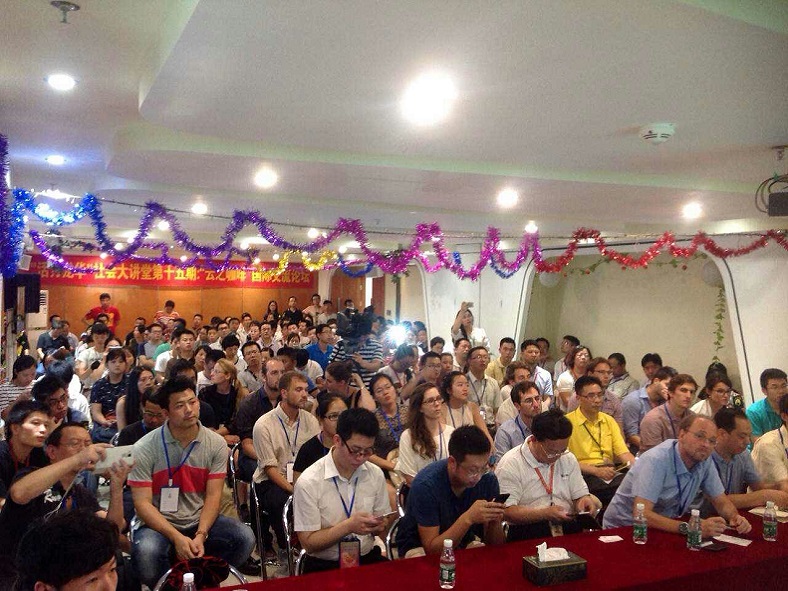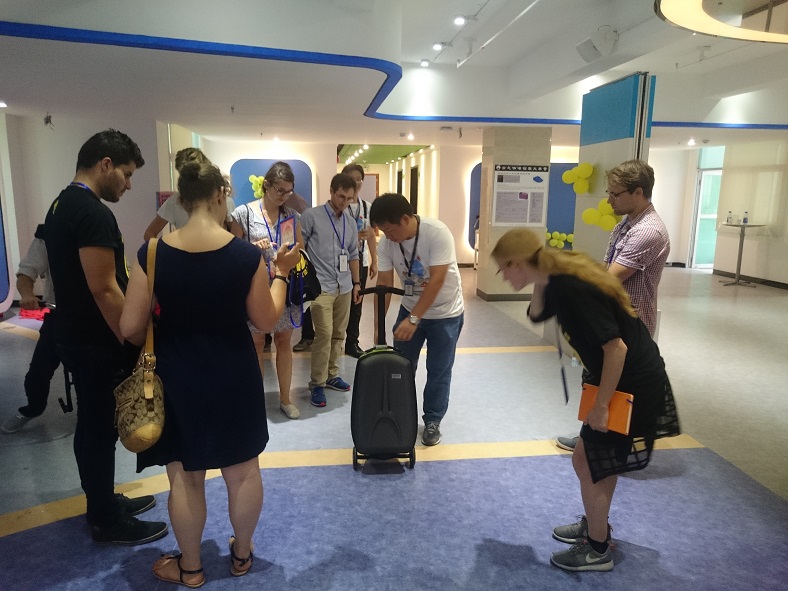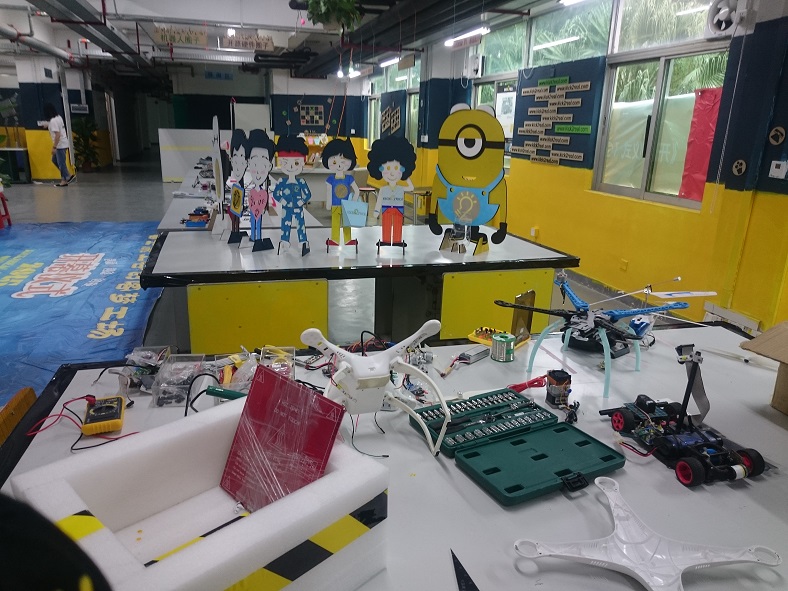The China Hardware Innovation Camp (CHIC) is a project initiated by Dr. Marc Laperrouza, lecturer and researcher at the Swiss Federal Institute of Technology (EPFL) and teacher at the Faculty of Business and Economics of the University of Lausanne (HEC Lausanne), together with Alex Wayenberg and Pascal Marmier.
Starting from scratch, a total of 15 selected students have been given 30 working days to come up with a product that they will subsequently build all by themselves with spare parts. To take on this challenge, each of the three teams includes students that come from various schools – EPFL, HEC Lausanne and ECAL – who can contribute with their expertise in fields such as business, industrial design, programming, electronics and engineering.
Having started in Switzerland, CHIC has included a trip to Hong Kong and Shenzhen in order to witness first-hand the hardware and manufacturing industry as well as to get insights on the market.
Shortly after arriving in Shenzhen, students from the CHIC were greeted by Pascal Marmier and Didier Boschung, Consul General of Switzerland in Guangzhou, who proceeded to introduce the province of Guangdong to the newly arrived teams. To complete this event, alumni from all Swiss universities were invited to take part in a networking and cocktail reception in order to meet each other and know more about the China Hardware Innovation Camp. Overall, around 35 people were present during that evening, representing ECAL, EHL EPFL, ETHZ, HEC Lausanne, IMD, UNIFR and UZH.
On the following day, a visit has been scheduled at a local manufacturing plant, showing the processes used and the scale of such factories in Shenzhen. Afterwards, students were dropped off at the Huaqiangbei area, which is renowned for its electronics and spare parts markets, epicenter of the manufacturing and electronics industry. Some expressed their awe in front of this gigantic ecosystem; however, no time for sightseeing – it was crucial for all three teams to find and buy the much needed parts for their respective prototypes. To this effect, it was a difficult task, as it was not only complicated to find specific pieces in the seemingly chaotic layout, but also because of language barrier and the unavailability of specific parts. At the end, all were able to find a significant amount of pieces needed for their prototypes, although a second trip to Huaqiangbei or a search online will be required in order to complete their inventory.
A full day has then been allocated to working at Seeed studio, a hardware innovation platform providing makers with knowledge, agile manufacturing facilities and accessible technologies, where teams will be spending most of their time during the trip in Shenzhen. It was impressive to see the students in action, combining their knowledge and expertise to progress through their projects and using the spare parts previously purchased to build the prototypes. At the same time, pitches and presentations had to be prepared for the evening, where each team presented their products at the famed Chaihuo Makerspace, Shenzhen's first makerspace. This event attracted a fair number of makers and interested minds, who attentively discovered the China Hardware Innovation Camp program, and the products pitched by all three teams. Following the presentations, the audience engaged in a Q&A and then a free discussion time, where relevant questions were raised, interesting contacts exchanged, and valuable insights given to the students.
Another highlight of the trip was the visits at Huawei and Foxconn. The former opened its doors for the CHIC members to learn more about Huawei, its phone factory, and the general organization. Beginning with two presentations from the company's staff, presenting technical elements specifically directed to the group of students, all members had the chance to walk around the phones manufacturing facilities, with a close-up look to the working engineers and sophisticated machines. Many did not know about Huawei before arriving in China and expressed very positive opinions about the company. Moreover, a short tour on bus showed the extensive campus of Huawei, with a focus on the employees' residence and the Huawei University contributed by the company's seniors to continuously train the staff.
Foxconn welcomed the CHIC members as well, dedicating a major part of an event to the students' projects. The event, a conference for makers, was honored by the presence of David Li, co-founder of XinCheJian, the first hackerspace in China. After an in-depth presentation by Li, the floor was given to Marc Laperrouza, who introduced the China Hardware Innovation Camp. Once again, all teams presented their projects and were ready to receive questions and feedback from the audience. Later, a small tour was organized at Kick2Real, a makerspace at Foxconn. Besides discovering the space and the facilities, many prototypes were available and everyone could have a fun hands-on experience with different innovative products. Lastly, a brief visit of the factory was made, showing the students the detailed process of injection molding at Foxconn.
This is a report based on a few days of the China Hardware Innovation Camp in Shenzhen. If you are interested in knowing more about the programs, the different projects, and the full story, please check out their website! http://www.chi.camp/
- Contributed by Jean Pierre Trang, Junior Project Leader in cooperation with HEC Lausanne







